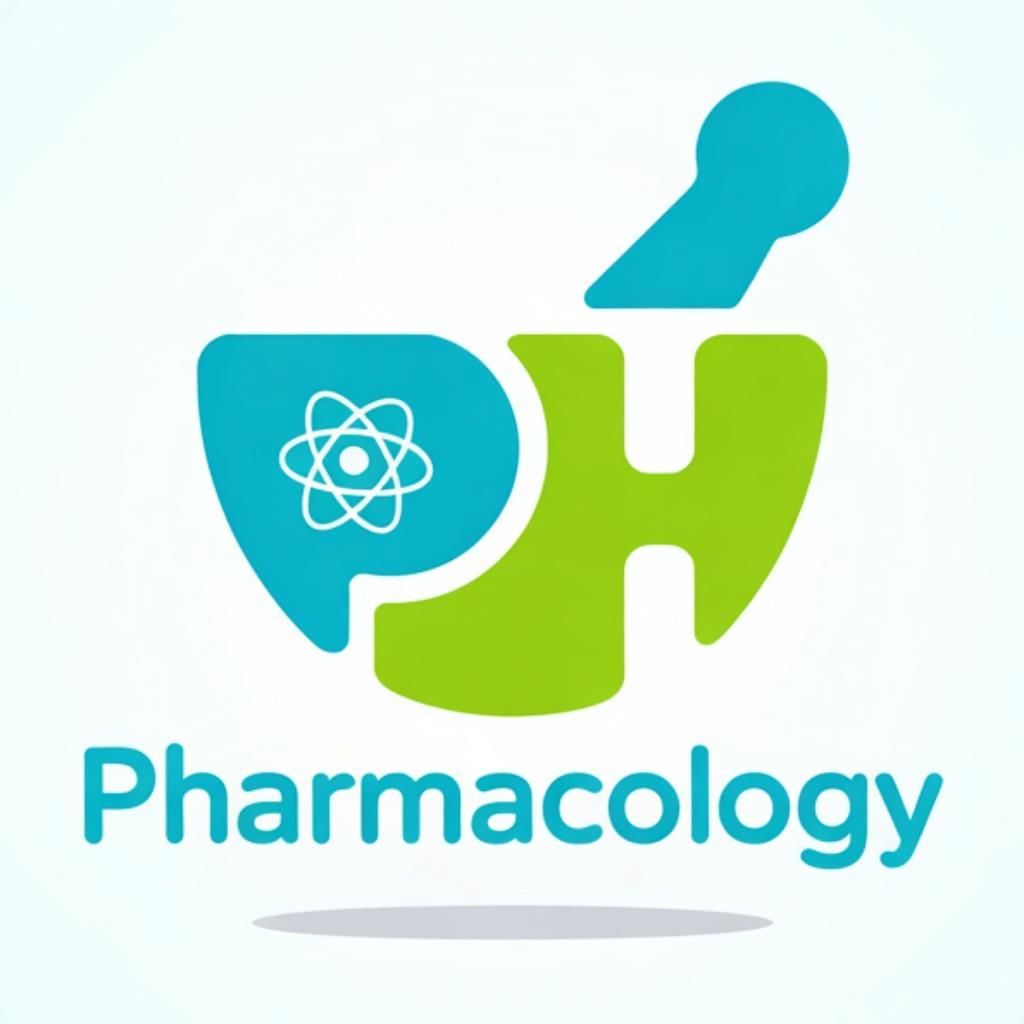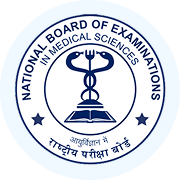
|
INFINITY COURSE
Pharmacology for NEET PG500 students learning this week · Last updated on Oct 17, 2025 |
Pharmacology Study Material
Trending Courses for NEET PG
Pharmacology for NEET PG Exam Pattern 2025-2026
Pharmacology Exam Pattern for NEET PG
The NEET PG (National Eligibility cum Entrance Test for Postgraduate) is a crucial examination for medical graduates in India, seeking admission to various postgraduate courses. Understanding the exam pattern, especially the pharmacology section, is vital for effective preparation.
1. Exam Structure
The NEET PG exam comprises:
- Type of Questions: Multiple Choice Questions (MCQs)
- Total Questions: 200
- Subjects Covered: Various subjects, including pharmacology
2. Weightage of Pharmacology
In the NEET PG exam, the weightage of pharmacology is significant:
- Number of Questions from Pharmacology: Approximately 10-15 questions
- Topics to Focus On: Drug classifications, mechanisms of action, side effects, and therapeutic uses
3. Marking Scheme
The marking scheme for NEET PG is designed to evaluate candidates' knowledge effectively:
- Correct Answer: +1 mark
- Incorrect Answer: -1/3 mark (negative marking)
- Unattempted Questions: 0 marks
4. Duration and Language
The exam is structured to assess candidates within a specified timeframe:
- Duration: 3 hours 30 minutes
- Language: English
5. Preparation Tips for Pharmacology
To excel in the pharmacology section, consider the following tips:
- Understand Key Concepts: Focus on understanding rather than rote memorization.
- Utilize Diagrams and Flowcharts: Visual aids can enhance memory retention.
- Practice MCQs: Regular practice using past papers and mock tests is essential.
6. Conclusion
In conclusion, a solid understanding of the pharmacology exam pattern for NEET PG can significantly enhance your preparation strategy. Focus on the key topics, practice regularly, and manage your time effectively during the exam.
Pharmacology Syllabus 2025-2026 PDF Download
NEET PG Pharmacology Syllabus
NEET PG History of Pharmacology
- Introduction to Pharmacology
- Evolution of drug therapy
- Key figures in pharmacological research
- Historical milestones in drug discovery
NEET PG General Pharmacology
- Pharmacokinetics: Absorption, Distribution, Metabolism, Excretion
- Pharmacodynamics: Mechanism of action of drugs
- Drug interactions
- Drug formulation and delivery systems
NEET PG Autonomic Nervous System
- Overview of the autonomic nervous system
- Cholinergic and adrenergic pharmacology
- Drugs affecting the autonomic nervous system
- Clinical applications and side effects
NEET PG Autacoids
- Histamine and antihistamines
- Prostaglandins and leukotrienes
- Serotonin and its antagonists
- Clinical significance of autacoids
NEET PG Cardiovascular System
- Antihypertensive drugs
- Drugs for heart failure
- Antiarrhythmic agents
- Lipid-lowering agents
NEET PG Kidney
- Diuretics and their mechanisms
- Drugs for renal failure
- Electrolyte management
- Renin-angiotensin-aldosterone system drugs
NEET PG Endocrinology
- Hormones and their pharmacology
- Drugs for diabetes management
- Thyroid and adrenal pharmacology
- Reproductive hormones and contraceptives
NEET PG Central Nervous System
- Analgesics and anti-inflammatory drugs
- Antidepressants and mood stabilizers
- Antipsychotic medications
- Drugs for epilepsy and neurodegenerative disorders
NEET PG Anaesthesia
- General and local anesthetics
- Adjuncts to anesthesia
- Pharmacology of muscle relaxants
- Postoperative pain management
NEET PG Hematology
- Anticoagulants and antiplatelet agents
- Drugs for anemia and blood disorders
- Transfusion medicine
- Emerging therapies in hematology
NEET PG Respiratory System
- Bronchodilators
- Anti-inflammatory drugs for asthma
- Drugs for chronic obstructive pulmonary disease (COPD)
- Expectorants and mucolytics
NEET PG Gastrointestinal Tract
- Antacids and proton pump inhibitors
- Anti-emetics
- Laxatives and anti-diarrheal medications
- Drugs for inflammatory bowel disease
NEET PG Chemotherapy A: General Considerations and Non-specific Antimicrobial Agents
- Principles of chemotherapy
- Non-specific antimicrobial agents
- Mechanisms of action
- Resistance and its implications
NEET PG Chemotherapy B: Antimicrobials for Specific Conditions
- Antibiotics: Classification and uses
- Antifungal agents
- Antiviral medications
- Clinical applications of specific agents
NEET PG Chemotherapy C: Antineoplastic Drugs
- Cytotoxic agents
- Targeted therapies and immunotherapy
- Adverse effects and management
- Recent advances in cancer pharmacotherapy
NEET PG Immunomodulators
- Overview of immunomodulatory drugs
- Drugs for autoimmune diseases
- Biologics and monoclonal antibodies
- Vaccines and their pharmacology
NEET PG Other Topics and Adverse Effects
- Adverse drug reactions and pharmacovigilance
- Drug interactions and contraindications
- Special populations: Pediatrics and geriatrics
- Herbal and alternative therapies
NEET PG Drugs of Choice
- Drug of choice for common conditions
- Guidelines for treatment selection
- Considerations for personalized medicine
- Updates on standard treatment protocols
NEET PG New Drugs
- Emerging therapies in pharmacology
- Recent FDA approvals
- Innovations in drug delivery systems
- Future directions in pharmacotherapy
NEET PG Recent Topics
- Current trends in pharmacology research
- Updates on drug regulation and safety
- Pharmacogenomics and personalized medicine
- Impact of technology on pharmacology
This course is helpful for the following exams: NEET PG
How to Prepare Pharmacology for NEET PG?
Preparing for Pharmacology in the NEET PG (National Eligibility cum Entrance Test for Postgraduate) can be a daunting task given the vast syllabus and the depth of knowledge required. However, with the right strategies and resources, you can navigate through this subject efficiently. Here’s a comprehensive guide on how to prepare Pharmacology for NEET PG, particularly through the course offered by EduRev.
1. Understand the Syllabus
Before diving into preparation, it’s crucial to have a clear understanding of the NEET PG Pharmacology syllabus. Focus on key areas such as:
- Pharmacokinetics and Pharmacodynamics
- Drug Interactions
- Clinical Pharmacology
- Systems Pharmacology
By familiarizing yourself with these topics, you can prioritize your study schedule effectively.
2. Use EduRev’s Comprehensive Course
Enroll in the EduRev Pharmacology course specifically designed for NEET PG aspirants. This course includes:
- Detailed Video Lectures: Covering all essential topics.
- Interactive Quizzes: To test your understanding and recall.
- Study Material: Concise notes and summaries for quick revision.
3. Make a Study Plan
Creating a structured timetable is crucial for effective preparation. Here’s how you can structure your study plan:
- Allocate specific hours each day to Pharmacology.
- Include time for revision and practice questions.
- Ensure to balance your time between theoretical studying and practical application.
4. Focus on Clinical Application
Pharmacology in NEET PG often focuses on clinical scenarios. Make sure you:
- Study drug classifications and their therapeutic uses.
- Understand the mechanisms of action and side effects.
- Practice case studies to connect theoretical knowledge with clinical practice.
5. Regular Revision and Self-Assessment
Revision is key to retaining information. Regularly revisit topics you’ve studied:
- Use the EduRev course materials for quick revisions.
- Take mock tests to assess your understanding and time management skills.
- Identify weak areas and focus on improving them.
6. Join Discussion Groups
Engage with peers or join discussion groups:
- Share insights and clarify doubts.
- Discuss tricky concepts or complex drug mechanisms.
- Group studies can often enhance understanding and retention.
7. Utilize Additional Resources
While the EduRev Pharmacology course is comprehensive, supplement your studies with:
- Standard Pharmacology textbooks.
- Online resources like lectures or journals.
- Previous years’ NEET PG question papers for practice.
Conclusion
Preparing for Pharmacology for NEET PG requires a strategic approach and dedicated resources. By utilizing the EduRev Pharmacology course, creating a structured study plan, focusing on clinical applications, and regularly revising, you can enhance your preparation effectively. Stay consistent, practice regularly, and approach your studies with confidence, and you will be well on your way to mastering Pharmacology for NEET PG.
Importance of Pharmacology for NEET PG
Importance of Pharmacology Course for NEET PG
Pharmacology is a critical component of medical education, especially for aspiring postgraduate medical students preparing for the NEET PG examination. Understanding pharmacology not only enhances clinical practice but also ensures safe and effective patient care. Here are the key reasons why this course is indispensable for NEET PG aspirants:
1. Foundation of Clinical Medicine
Pharmacology serves as the foundation for understanding how drugs interact with the body. It provides essential knowledge on:
- Mechanisms of Action: Understanding how drugs work at a molecular level.
- Drug Interactions: Learning about potential interactions between different medications.
- Therapeutic Uses: Knowing the indications for various drugs in treatment protocols.
2. Critical for NEET PG Exam Success
The NEET PG examination tests candidates on a wide range of topics, including pharmacology. A solid grasp of pharmacology is crucial for:
- Multiple Choice Questions (MCQs): Many questions in the exam are directly related to pharmacological principles.
- Clinical Scenarios: Pharmacology knowledge helps in solving clinical case studies presented in the exam.
3. Enhancing Patient Safety
Pharmacology education plays a vital role in ensuring patient safety through:
- Adverse Effects Awareness: Understanding potential side effects and contraindications of medications.
- Correct Dosage Administration: Learning about appropriate dosing based on patient factors.
4. Preparing for Clinical Practice
Beyond exams, pharmacology is crucial for real-world clinical practice. It equips students with the skills to:
- Choose Appropriate Medications: Making informed decisions on drug therapy.
- Monitor Patient Responses: Assessing effectiveness and safety of prescribed medications.
5. Interdisciplinary Relevance
Pharmacology intersects with various medical disciplines, making it relevant for:
- Internal Medicine: Understanding chronic disease management.
- Surgery: Knowledge of anesthetics and postoperative medications.
- Pediatrics: Adjusting drug therapies for different age groups.
Conclusion
In summary, enrolling in a pharmacology course is essential for NEET PG aspirants. It not only helps in exam preparation but also lays the groundwork for safe and effective clinical practice. The comprehensive insights gained from such a course will undoubtedly enhance the skills of future healthcare professionals.
Pharmacology for NEET PG FAQs
| 1. What is pharmacology and why is it important for NEET PG? |  |
| 2. What are the main branches of pharmacology relevant to NEET PG? |  |
| 3. What is the significance of drug classification in pharmacology? |  |
| 4. How do pharmacokinetics and pharmacodynamics differ? |  |
| 5. What role do drug interactions play in pharmacology? |  |
| 6. What are the common routes of drug administration? |  |
| 7. What is the significance of bioavailability in pharmacology? |  |
| 8. What are the adverse drug reactions (ADRs) and their classifications? |  |
| 9. How do age and gender influence pharmacokinetics? |  |
| 10. What is the first-pass metabolism and its clinical significance? |  |
| 11. What are the key pharmacological principles that NEET PG candidates should remember? |  |
| 12. How do you determine the dosage of a medication? |  |
| 13. What is the therapeutic index and its relevance in pharmacology? |  |
| 14. Why is it important to understand the mechanisms of drug action for NEET PG? |  |
| 15. How do you prepare for pharmacology questions in the NEET PG exam? |  |
Best Coaching for Pharmacology for NEET PG
Tags related with Pharmacology for NEET PG

|
View your Course Analysis |

|

|
Create your own Test |

|






































